Meta description: Are ants on pepper plants a problem? Find out the benefits and drawbacks of having ants in your garden and learn how to keep them away from your pepper plants!
Ants on your pepper plants have a mix of positive and negative effects.
I’m going to let you in on a secret—ants are actually an essential part of the ecosystem as they feed on many pests and they help to pollinate plants.
There are two factors that should be considered before deciding whether ants are good or bad for your pepper plants: the type of ant and the presence or absence of aphids.
In relation to that, there are actually certain ant species that are only a nuisance, meaning they don’t cause real damage, and these are Fire Ants, Carpenter Ants, and adult Leafcutter Ants.
In your vegetable garden, the most common ants you will probably see would be the black ones, and you should only worry about them if aphids are present as well. Otherwise, they can only cause nuisance.
In this case, there are many natural remedies you can use to get rid of them—the best option is to take care of aphids if they are present.
Otherwise, you could apply diatomaceous earth, or vinegar, build a bait station for them using borax with sugar, or deter them with strong odors that they don’t like.
- Related article: Ants Eating Plants
Read on to discover more about how ants can influence your pepper plants and what to do about it.
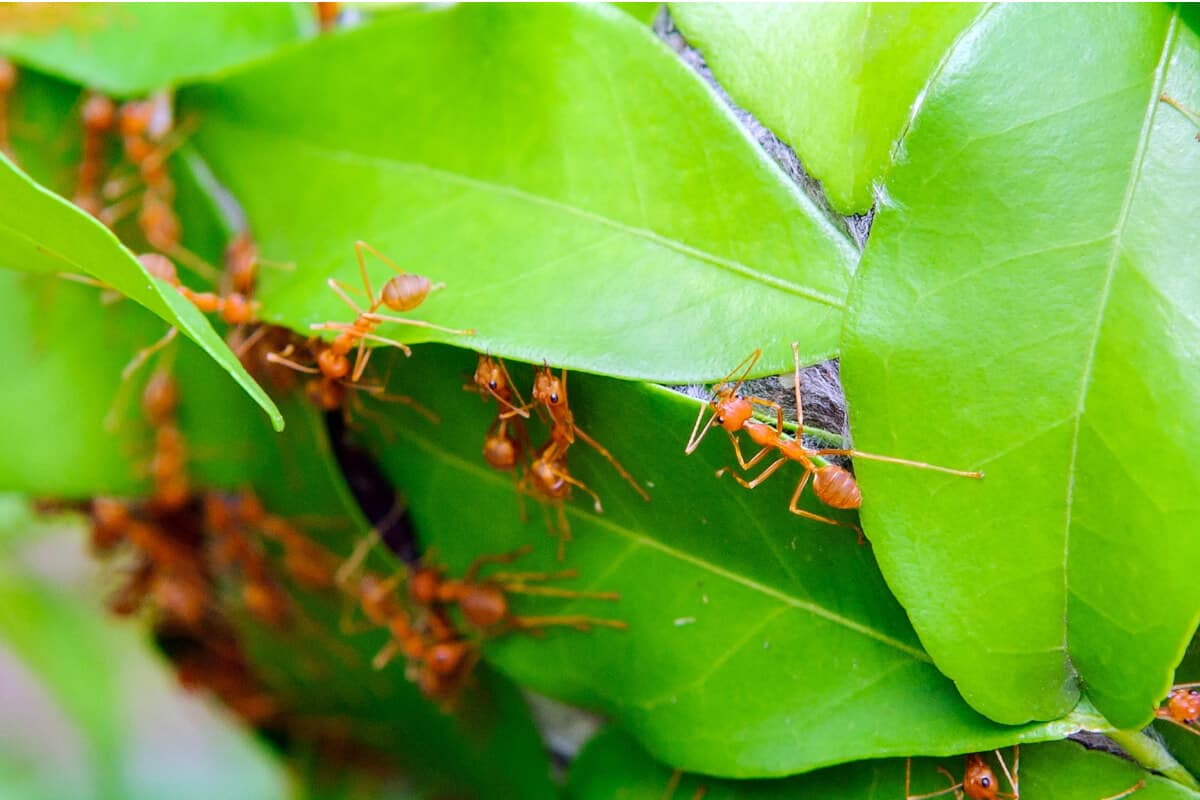
Are Ants on Pepper Plants a Problem?
Ants can be an issue mainly if you see them in conjunction with aphids.
These tiny insects are the real danger, since they suck the sap from the plant’s leaves, weakening it.
If there are only a few of them, they don’t cause much harm, but when their population grows, the plants suffer and they become easy targets for other pests.
Ants can play an important role in this, and they can also be a problem for other reasons. Let’s see the main ones:
1. Ants Farm Aphids on Pepper Plants
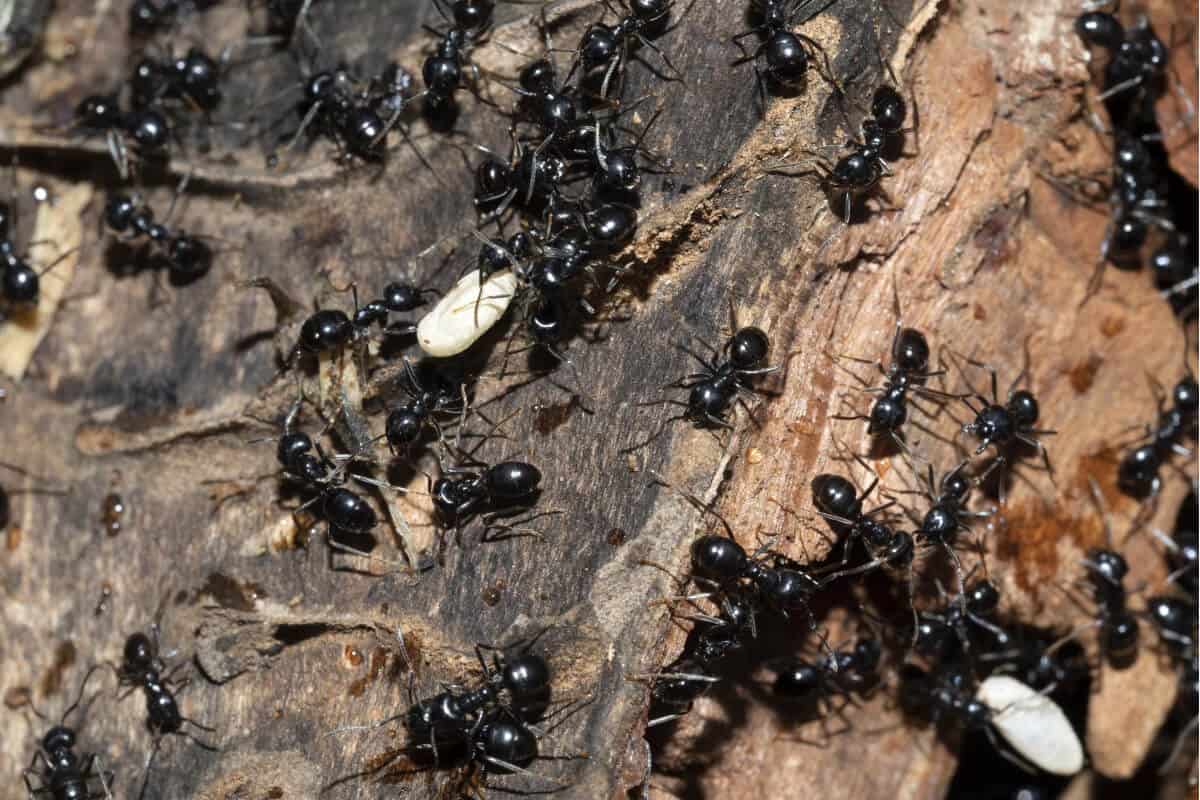
Ants and aphids have developed a relationship of mutualistic symbiosis, meaning they both benefit from their interactions.
Ants feed from the sugary substance aphids excrete, while the sap-sucking insects get protection from predators.
The sticky substance, called the honeydew substance, is what attracts ants to aphids, therefore, to your plants.
What this means is that in the presence of ants, the aphid population on your pepper plants could grow exponentially.
2. Ants Might Open Up the Way for More Serious Illnesses
Because of their symbiotic relationship with aphids, ants contribute to the weakening of your pepper plants.
When the products of photosynthesis are sucked away by a great number of aphids, your pepper plants won’t have enough energy to defend themselves and withstand the attacks of other parasites.
3. Ants Feed From Shoots
Even if they usually don’t cause much damage through direct feeding, ants can sometimes be a nuisance.
Since they like the most tender parts of pepper plants, they can decrease your yield by killing off the delicate young shoots.
4. Ants Eat Seeds
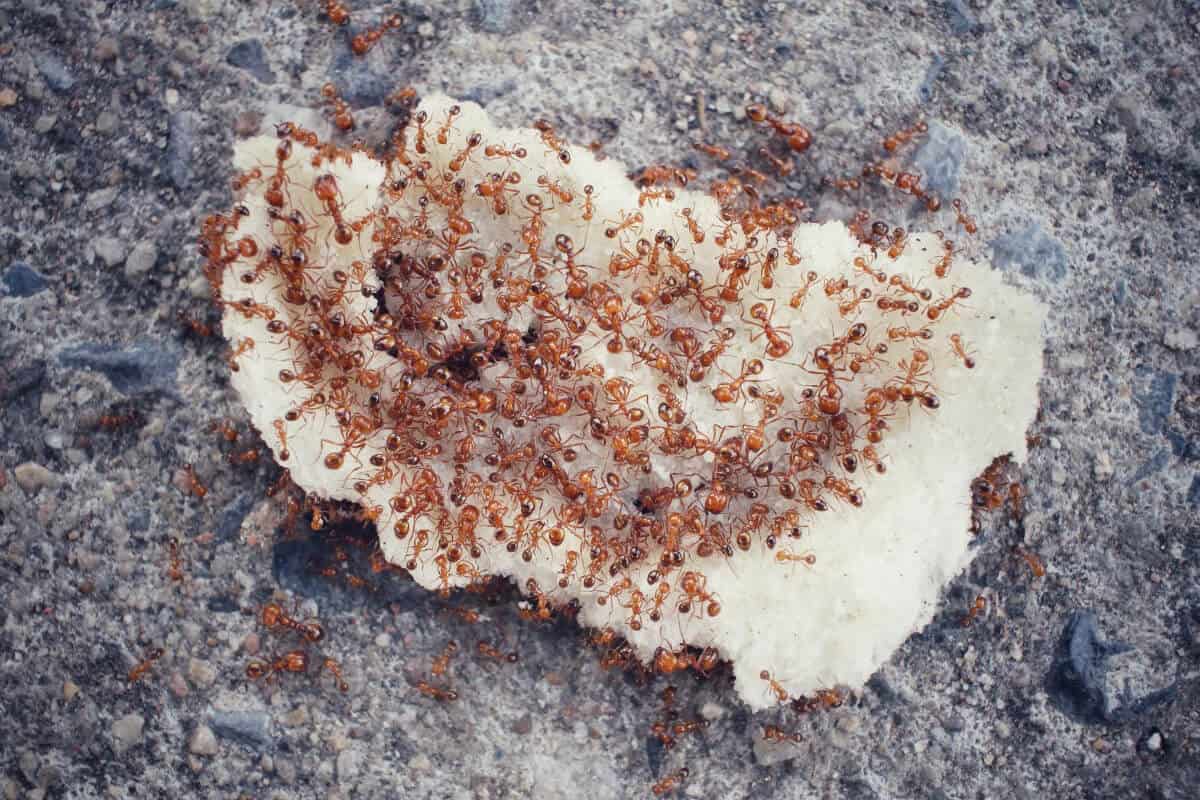
Ants like seeds, since they are very nutritious. They constitute an excellent source of protein and fats. If you’re not careful, they might take them all away to their nests before they have the chance to grow.
Will Ants Eat Pepper Plants?
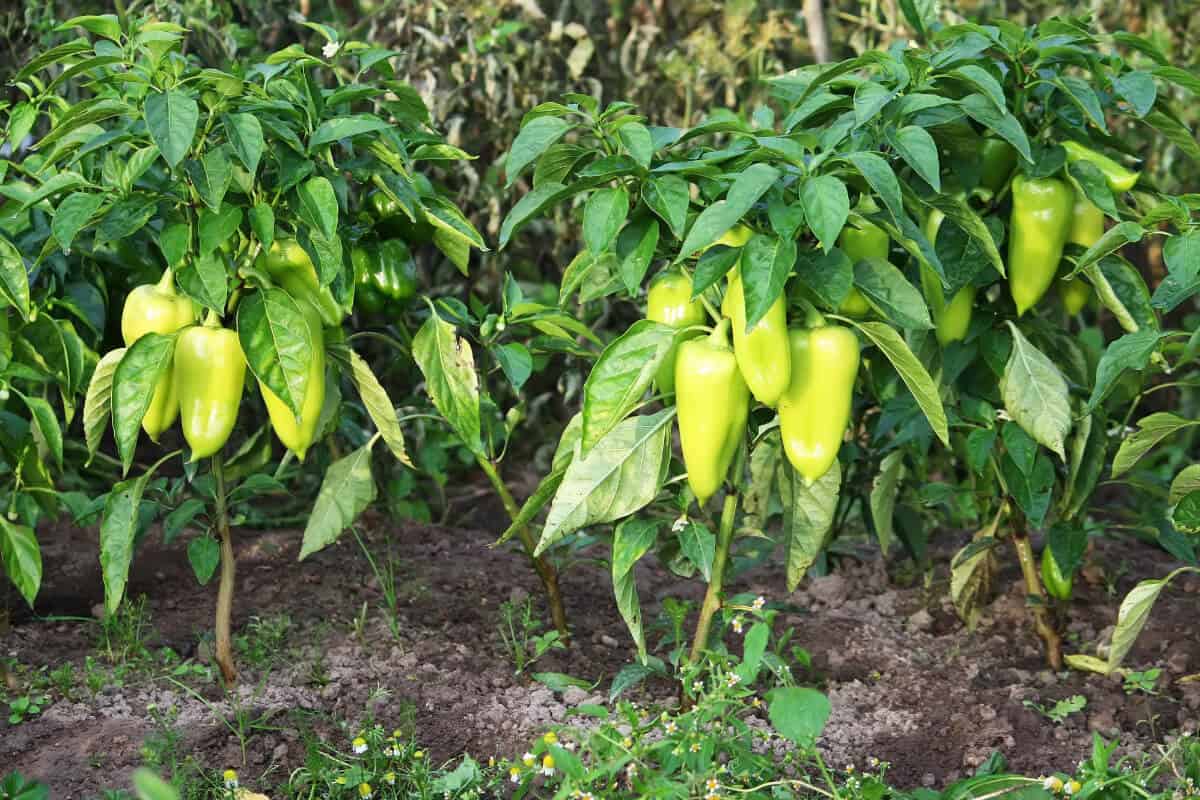
Ants normally don’t eat pepper plants. Some of them are attracted to shoots, which are tender enough to be an easy source of food.
In this phase, you might want to be extra careful to defend the vulnerable young shoots from their attacks.
The pepper fruits themselves don’t usually get eaten. The only time ants are interested in them is when they are on the ground, already decomposing.
In this case, ants will certainly feed from them, but they won’t be the cause of their going bad. Most likely, the peppers were attacked by pepper maggot flies.
There is also an exception, that is to say, a species that harms pepper leaves. This is the leafcutter ant, which literally cuts away pieces of plant leaves in order to take them back to their nests.
They are quite interesting ants because they don’t feed from these leaves directly. Instead, they use them to farm a specific fungus, which is the main source of food for their young.
Leafcutter ants occasionally feed from the sap of the leaves, but they don’t cause much damage this way.
These ants aren’t always a problem, since they only take a few leaves at a time.
They become an issue only if their population increases too much, which might mean their predators are lacking from your garden.
How Can Ants Help Pepper Plants?
1. Biological Control
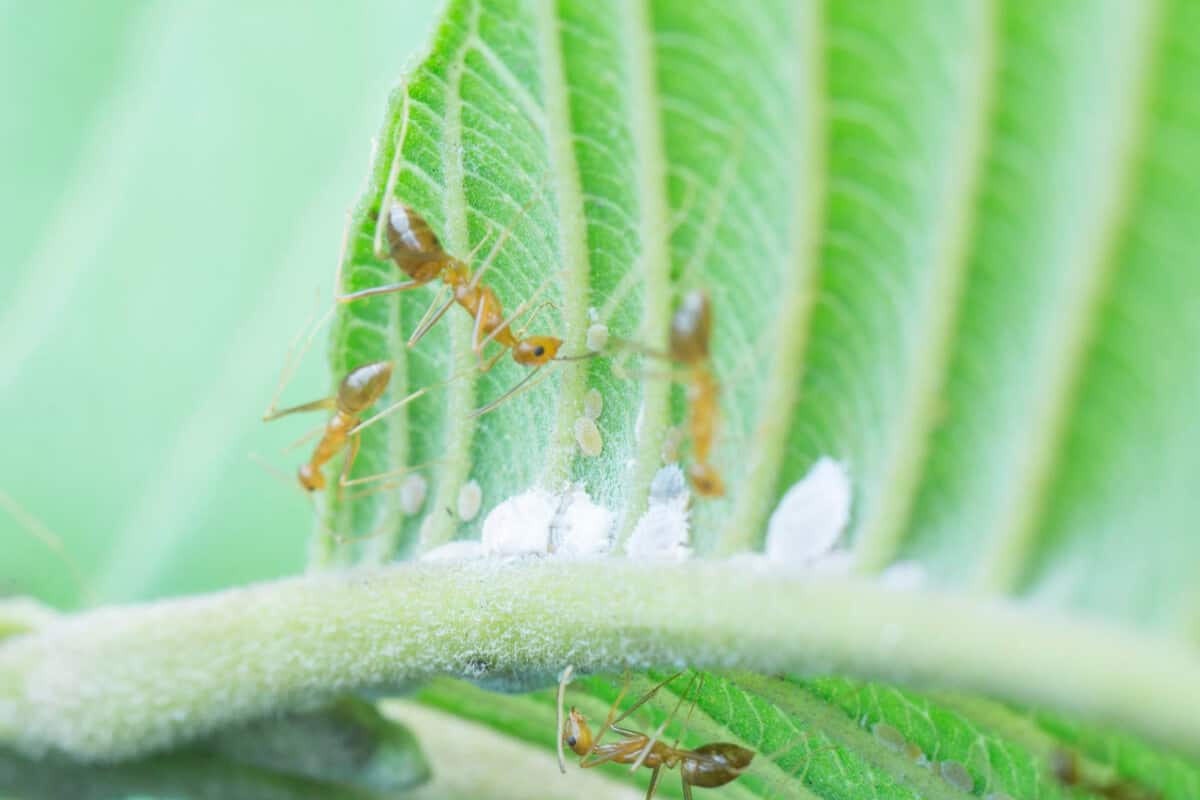
Ants are very efficient in controlling certain pests and numerous insects. They feed from the eggs and larvae of many harmful insects, such as caterpillars, fleas, and termites.
This is especially effective because it takes care of the problem before it has even presented itself.
2. Pollination
Ants are constantly on the move, looking for sources of food to harvest. By moving from plant to plant, they aid the pollination process, much like bees and other pollinator insects.
It’s true that they are less effective than bees, though.
3. Soil Improvement
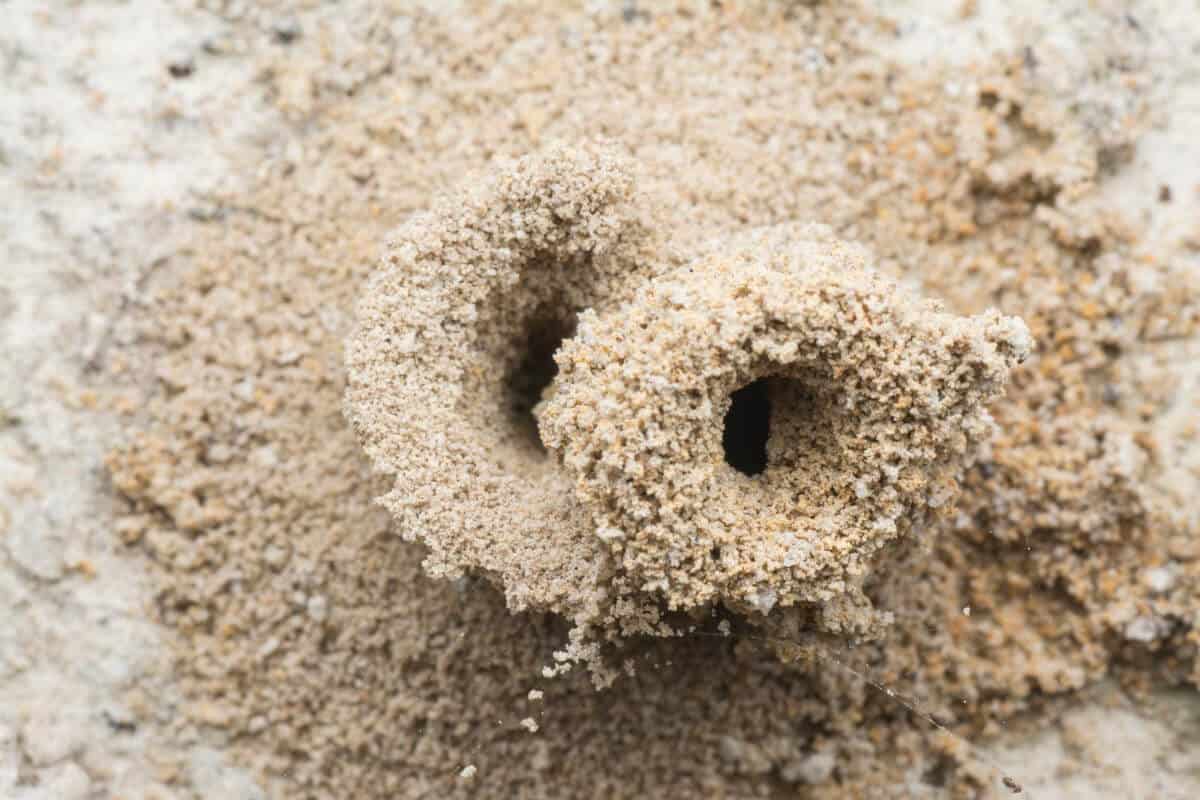
Ants dig galleries in the soil, which is usually a good thing. This system of tunnels helps to aerate the soil and makes oxygen and water more easily available for the plants.
Ants are also decomposers, so they break down organic waste into smaller particles.
These are further decomposed by microorganisms, and the resulting nutrients are ultimately released into the soil, fertilizing it.
Best Ways to Keep Ants Away from the Pepper Plants
There are a few safe ways to get rid of common pests in plants, like using water pressure when watering the entire plant, using insecticidal soaps or soapy water, and more.
Here are some of the best ways to keep ants from pepper plants:
1. Get Rid of Aphids
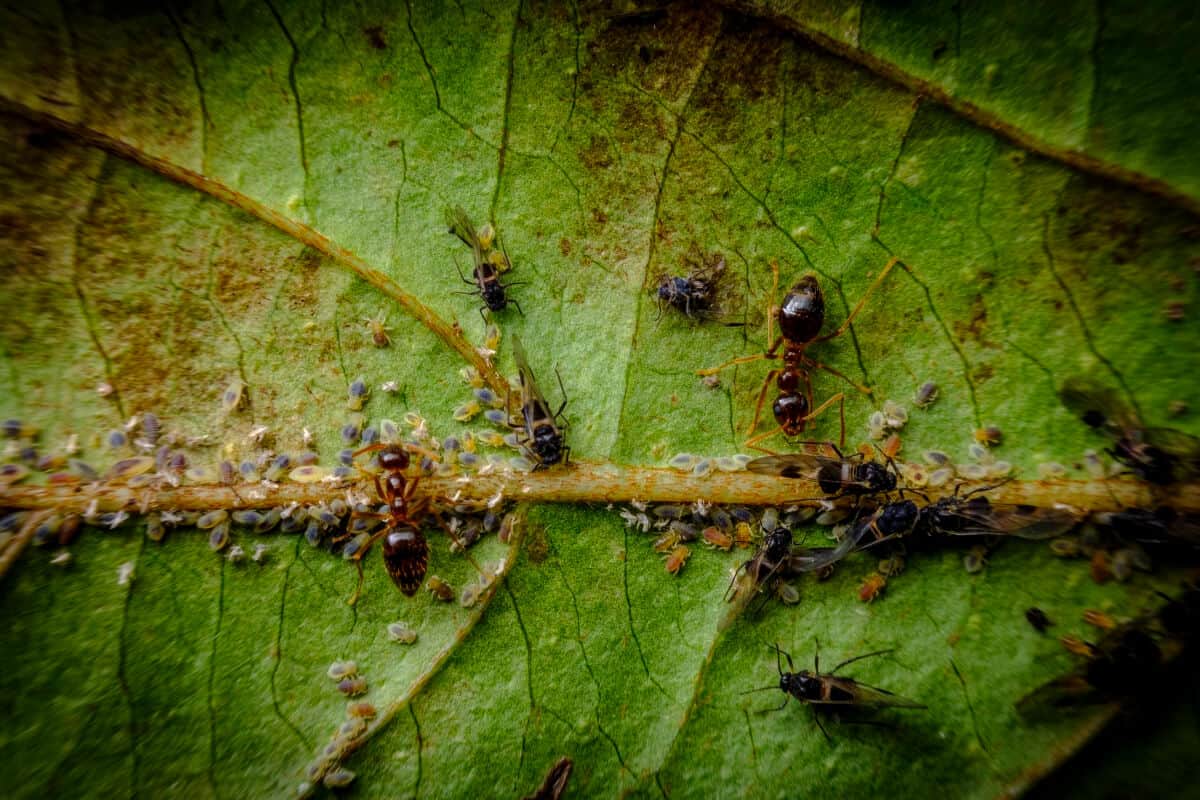
Since they are most often the underlying cause of the problem, it’s more efficient to take care of aphids rather than ants.
If they get wiped away from your garden, the ants will also look somewhere else for food.
An easy way to deal with a minor aphid infestation is to wash them away by blasting the plant with a hose or spray bottle.
If this isn’t enough, you can use a mix of soap and water and spray it on your plants.
Using neem oil or insecticidal soap is also an option.
2. Sprinkle Spices
Ants hate the smell of certain spices, such as fresh cayenne pepper, curry, and ground cinnamon powder.
Additionally, adding dish soap and egg shells to these spices help too.
Sometimes, sprinkling these spices on the soil around your pepper plant is enough to deter them.
This is a good solution if the ants aren’t actually causing much damage and you only want to keep them away without killing them.
3. Use Vinegar
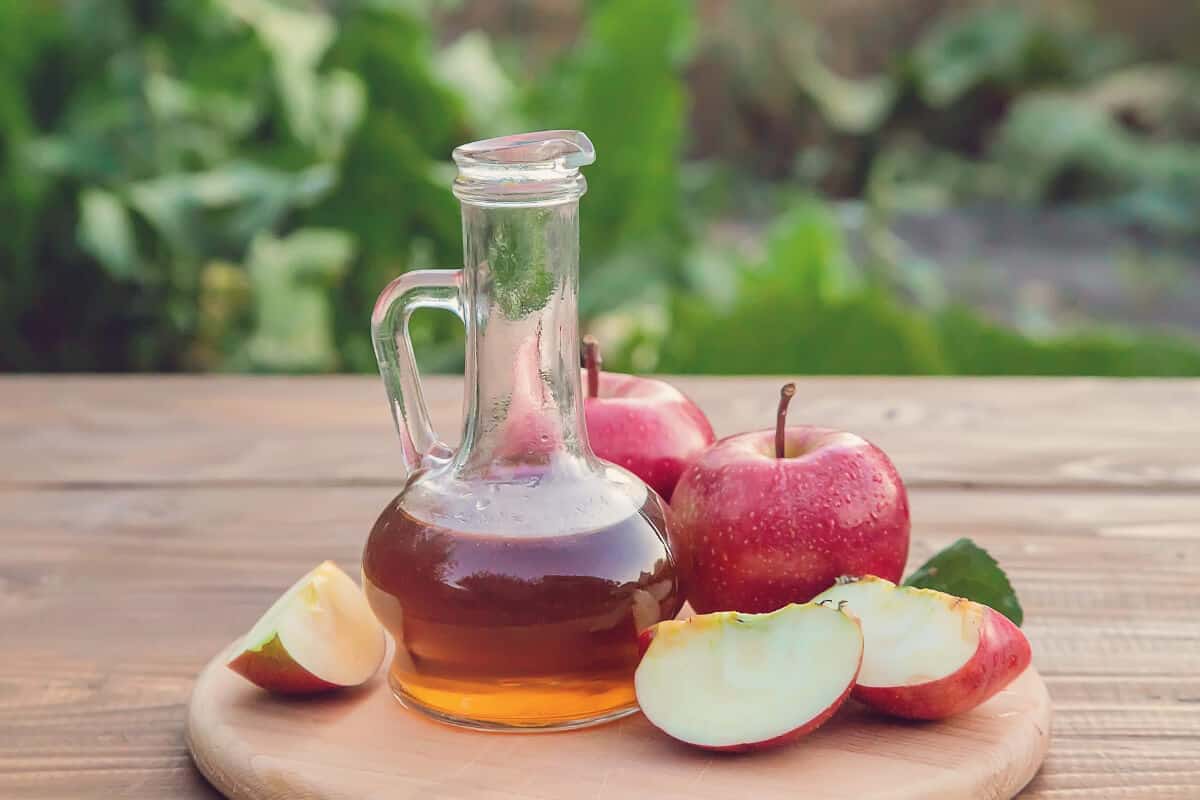
Both apple cider vinegar and white vinegar can be used on pepper plants.
They must be mixed with water in equal parts and then sprayed directly on the plant leaves and the surrounding area.
Vinegar has a triple effect: it kills the ants, inhibits their capacity to communicate, and it also takes care of aphids.
4. Make Ant Baits
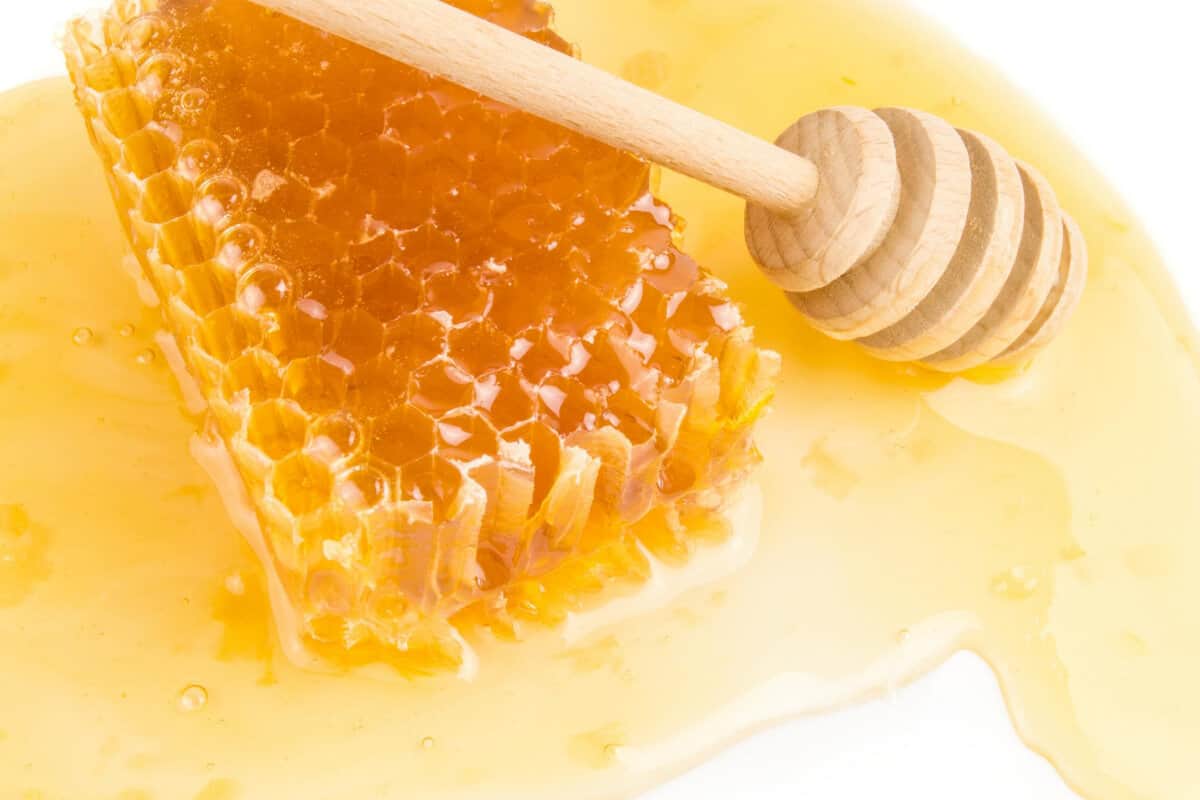
There is an easy homemade option and recipe that works wonders to make ant traps and kills ants.
By mixing borax powder with a sweet substance, such as powdered sugar or honey, in a clean container, you will attract plenty of ants.
They will be drawn to the sugar, which masks the smell of borax. This is what actually kills them since it is very poisonous for them.
When they find food, ants always eat a little and then carry the rest back to the nest.
In this way, this method can take care of the whole colony in a matter of days.
5. Apply Diatomaceous Earth (DE)
This chalk-like powder is made out of fossilized algae. It sounds exotic, but it’s actually very easy to find and cheap.
This method has the advantage of taking care of other pests as well, such as beetles, ticks, slugs, and earwigs.
Moreover, it doesn’t have any adverse effects on pets or plants.
That’s because DE is made of very tiny crystals that pierce the exoskeletons of insects, causing them to die of dehydration or other problems.
These particles, though, are too small to cause any damage to bigger animals.
Just be careful not to inhale the DE when spreading it, as it has effects on humans and could harm your lungs.
Of course, this method only works on contact, so it needs to be applied directly on the ant trails or their nest if you have located it.
Keep in mind that it’s most effective in dry conditions, so avoid it when the soil is too moist.
Ants on Pepper Plants Final Thoughts
Ants on pepper plants can be bad if they cause damage to the plant or spread disease.
The best ways to keep them away are getting rid of aphids, sprinkling spices such as cayenne pepper and cinnamon, using vinegar, baiting them with a borax-sweet mixture, and applying diatomaceous earth.
All of these methods, and other natural, alternative method, are safe for both people and plants and should be effective in getting rid of your ant problem!
Read these interesting articles to know more about ants on pepper plants:
- Ants on Vegetable Plants
- I Have Ants on My Strawberry Plants
- Ants on Tomato Plants
- Ants on Cucumber Plant
Sources:

